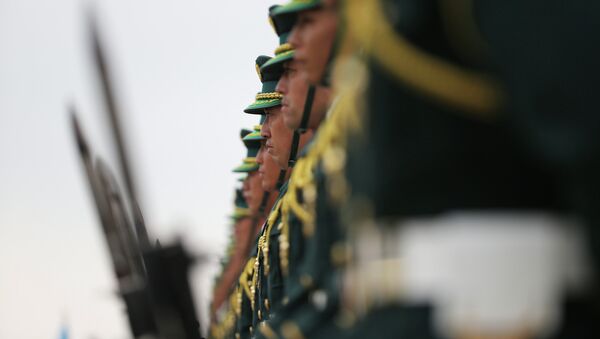MOSCOW, November 7 (RIA Novosti) — Domestic political discussions may prompt delays in Japan’s review of its military alliance treaty with the US, which is to be updated by the end of the year.
Washington and Tokyo, key allies in the Pacific Rim region, have been working on a review of the bilateral defense pact for the first time in 17 years, planning crucial updates of the pact in important areas such as cybersecurity and military use of satellites. However, the review process in Japan has been tainted by a political dispute over defense policy within the ruling coalition, led by PM Shinzo Abe, according to a Reuters report.
The government of Japan is allegedly divided over the framework and limits of the updated agreement in the sphere of military collaboration. The internal cabinet disputes are causing delays to Japan’s participation in talks with their American colleagues, and both Washington and Tokyo are considering postponing the finalization deadline of the new alliance treaty.
The conflict has developed between PM Abe and one of the parties in his coalition, the Buddhist-backed Komeito. This summer Abe had unprecedentedly allowed for Japanese armed forces to be used abroad, and the new pact with the US would afford Japan the right to assist friendly nations being attacked by a third party. On one hand, Komeito want to restrict any Japanese participation in “collective self-defence” to military deployment in waters surrounding the island nation; on the other hand, Abe’s ultimate intention is to send Japanese troops to assist the US in places like the Middle East and the Gulf.
"The deadline is something that we agreed on, so we will make diligent efforts to stick to that time frame," Japan’s Defense Minister Akinori Eto said during a news conference as reported by Reuters, effectively rebuffing any speculation of possible delays in the alliance pact review.
Last month Japan and the US negotiated to define their future responsibilities under a collective self-defense agreement. However, in Japan many believe that Abe will not be able to put through a respective legislation until early next year.
Japan’s constitution prohibits "land, sea and air forces, as well as other war potential"; accordingly, Japan formally does not have a military capacity. Nevertheless, the nation has a 260,000-strong de facto military, dubbed ‘Self-Defence Forces’, which includes ground forces, as well as maritime and aerial units. Recent tensions with North Korea and sharpened territorial disputes with Mainland China have pushed Japan towards closer military cooperation with its allies, as well as boosting its scope of military reach.



